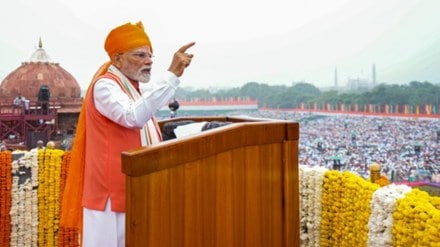By Lalit Bhasin, Former President, Indo American Chambers of Commerce, and President, Society of Indian Law Firms
As the government crafts next-generation reforms under the Viksit Bharat 2047 vision, India’s focus on long-term, structural growth marks a departure from the short-term approach of earlier decades. Sustainable prosperity requires a robust domestic ecosystem of investment, consumption, and innovation. The world over, every developed economy shares a common foundation—an expansive, dynamic retail sector that fuels job creation, attracts steady capital inflows, and stimulates consumer demand through simplified rules and modern infrastructure.
Now on the cusp of a consumption revolution, India must relook its retail landscape through this lens. Simplifying investment norms and modernising retail regulation will not only deepen competitiveness but also accelerate the journey toward a $30-trillion inclusive economy powered by investor confidence and resilient supply chains. The government’s recent decision to consider e-commerce exports under the inventory model is a welcome and progressive step in this direction, signalling its commitment to expanding India’s retail sector potential.
Unleashing the next wave of India’s retail growth
India’s retail sector, valued at $1.06 trillion in 2024, is set to nearly double to $1.93 trillion by 2030, driven by rising incomes, demographic shifts, digital adoption, and the rapid expansion of organised retail into smaller towns. Globally, the scale of retail in economies such as China ($5.2 trillion) and the US ($7.4 trillion) shows the possibilities that lie ahead for India as its consumption base deepens.
For a fast-growing economy like India that relies heavily on domestic consumption, the case for reforming retail policy is both strategic and urgent. It can channel long-term capital into modern supply chains, boost formal jobs, and strengthen the very engine that drives growth. To fully realise this opportunity, India must modernise the regulatory framework that governs investment in retail.
Aligning retail policy with a modern economy
At the heart of the challenge lies India’s foreign direct investment (FDI) categorisation system which divides retail into single-brand, multi-brand, wholesale, and inventory and marketplace e-commerce. Each model is governed by distinct rules on ownership, sourcing, and operations—a structure that has served the sector well through its formative years. As India’s retail ecosystem evolves and the lines between offline and online channels blur, there is now an opportunity to modernise this framework to reflect a more integrated, innovation-driven market.
Reforming India’s retail sector investment policy offers a powerful opportunity to align regulation with market realities. A more flexible FDI framework that enables companies to expand across retail segments without being constrained by predetermined categories would allow investors to respond more effectively to emerging opportunities. It would enable businesses to adopt omnichannel models that seamlessly integrate physical and digital retail and encourage more efficient use of shared infrastructure such as warehouses and distribution networks. Such modernisation would create a seamless, innovation-driven marketplace, one that reflects the pace and diversity of today’s consumer economy.
Simplified structures to multiply benefits
The government already recognises the retail sector’s pivotal role in job creation, micro, small, and medium enterprise (MSME) growth, and digital empowerment, and reform can build on that foundation. Simplifying retail regulation would deliver multi-fold benefits. It would attract higher and more diversified foreign investment, driving exponential job growth as new capital fuels innovation, store expansion, logistics networks, and allied services. MSMEs would gain from stronger linkages with organised retail, enhancing global competitiveness and export readiness. Lastly, consumers would benefit from sharper price discovery, improved quality standards, and wider product variety.
Policy pathway for reform
Reform should focus on modernising India’s retail FDI framework to reflect how the sector operates today—integrated andtechnology-driven. The focus should be on maintaining a level playing field while removing barriers that constrain competitiveness and investment. Refining the current categorisation to enable seamless integration of offline and online channels will align India’s retail policy with the practices of high-growth economies and strengthen its position as a global investment destination.
As India progresses under the Viksit Bharat 2047 vision, retail sector reform can serve as a cornerstone of inclusive and sustainable growth. A smarter, simpler, and holistic retail policy will enhance self-reliance by enabling enterprise, expanding jobs, and powering the next wave of economic progress.
